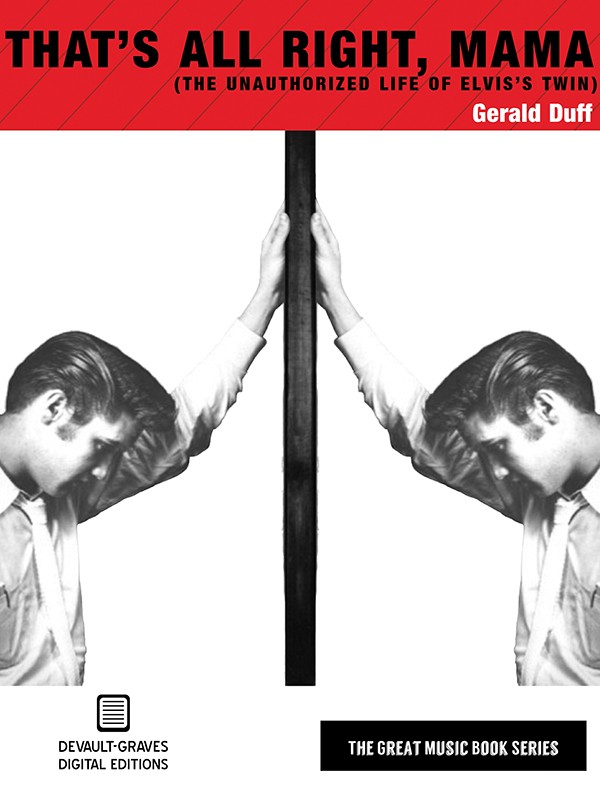It’s been a busy year for writer and publisher Tom Graves, and August has been an especially busy month. Best of Enemies, a documentary on the famed series of television debates between William Buckley and Gore Vidal by filmmakers Robert Gordon and Morgan Neville, premiered in Memphis on August 14th, and a book signing for the print edition of Graves’ Buckley vs. Vidal: The Historic 1968 ABC News Debates — published by the Devault-Graves Agency (Graves’ Memphis-based publishing house, co-founded by Darrin Devault) — was a few days earlier.
Graves was consulting producer on Best of Enemies, but the other news this month is the arrival in print form (an e-book edition with “bonus” material is also available) of another title, again published by Devault-Graves. This one, though, is all Graves. It’s a “retrospective” of his journalism over the past several decades, a collection that, as Graves says, “reflects me and my muse and my years of toiling away at this thing called writing.”
The book opens with a muse by the name of Louise Brooks and what, by anyone’s measure, was a real coup for a young journalist in Memphis in the early 1980s: Graves’ meeting with Brooks in Rochester, New York, where the reclusive silent-screen actress was living. Graves had planned on writing a full-scale biography of Brooks, and, as Louise Brooks, Frank Zappa, & Other Charmers & Dreamers explains, that biography never happened. But the beginnings (and background) to that project are here, as is an interview with Frank Zappa, which ran in 1987 in Rock & Roll Disc, the magazine Graves edited and published. Among the writers who appeared in that magazine and who also appears in a Q&A conducted by Graves in the e-book edition of Louise Brooks, Frank Zappa, & Other Charmers & Dreamers: music critic Dave Marsh.
There are other musicians featured to reflect Graves’ wide taste: the Blackwood Brothers, Mark Lindsay of Paul Revere & the Raiders, and what Graves calls “a guilty pleasure”: Tennessee Ernie Ford.
For another muse, though, go to actress Linda Haynes. Graves did, thanks to the contact information he received from another Haynes fan: Quentin Tarantino. But when it comes to literature (third in the trio of Graves’ ongoing interests), see the Q&A Graves conducted with Southern grit-lit master, Harry Crews.
Turns out, Graves’ collection is right in line with the mission of the Devault-Graves Agency: bringing out-of-print but deserving titles back to the screen (in e-book form) or into readers’ hands (in traditional print form).
That’s what Devault-Graves will be doing next month with a new print edition of Sun Records: An Oral History by John Floyd, former music editor of the Flyer. (The e-book is available now from Amazon and the Barnes & Noble website.) It’s what Devault-Graves did earlier this year when it received major media attention for publishing Three Early Stories by J.D. Salinger. The company is also restoring, in uncensored print form, Maggie Cassidy by Jack Kerouac. This week, however, the focus of attention is Tom Graves, journalist.
He’s a novelist too (Pullers), a biographer (Crossroads: The Life and Afterlife of Blues Legend Robert Johnson), and co-author (with Devault) of a photography book (Graceland Too Revisited). Louise Brooks, Frank Zappa, & Other Charmers & Dreamers fulfills a dream that is entirely the author’s.
“I wished there was something I had that people could focus on me as a writer — the way I tell a story, my style,” Graves says. “I’d like to think that when people think of Memphis writers that I’d be in that group.”
Not only in that group but in a subset of local writers known for their long-form journalism. From a writer who’s done decades of interviews, there’s really nothing to it. But in Graves’ words: “You’ve got to be very super prepared going in. If you’ve got 50 or so questions, you have to be prepared to not touch ’em once you start the ball rolling. A conversation takes on a life of its own.” And no telling where a series of such conversations can lead. In the case of Tom Graves, it could amount to an impressive career — and to more than a few greatest hits.
